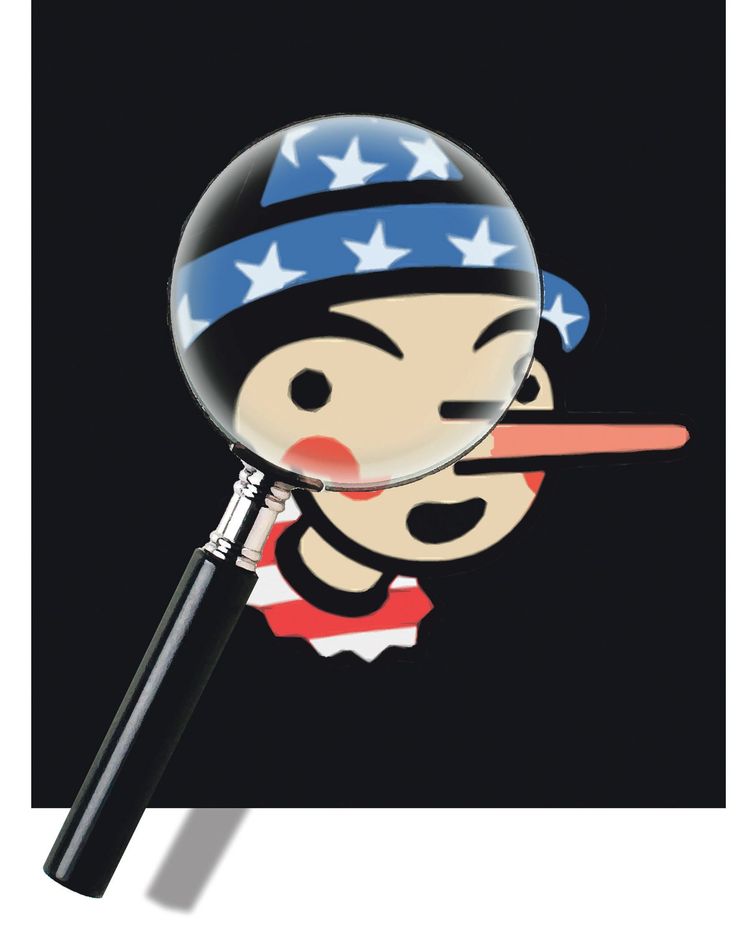[ad_1]

ANALYSIS/OPINION:
According to The Babylon Bee: “World-renowned fact-checking website Snopes has unveiled a brand new fact check rating called ‘False For Now.’ This will allow them to provide a rating for claims that are just conspiracy theories uttered by deranged far-right people until they later turn out to be true.”
The Babylon Bee comment, like good satire, was funny because it captured the essence of the truth of the suppression movement. Many of the “fact-checkers” are merely inexperienced young people with little real knowledge of the subjects they are checking, and many suffer from “confirmation bias.” The reports of these incompetent and biased fact-checkers are then used by the big social media companies as the crutch for their censorship operations.
Until last week, the establishment line (pushed by the Chinese communists and accepted by many in the media) was that the COVID-19 source was a “wet market” in Wuhan. Those who more than a year ago said the source was more likely to be a virology lab in Wuhan were often called anti-Chinese bigots or worse by the establishment and worthy to be censored — which many were.
Many of the same people who pushed the wet-market line were also the ones who claimed that former President Trump was only elected because of a Russian plot and that Mr. Trump was paranoid because he said that he and his campaign were spied upon during the 2016 election. Wrong on all accounts. Honorable people would have apologized for misleading their fellow Americans.
Those who are confident in their own beliefs and understanding of reality do not usually mind honest debate about their ideas, even though it might lead them to change a previously held position. They do not feel the need to suppress the thoughts and utterances of others. It is usually the insecure, the ill-informed or dependent who feel the need to suppress or “cancel” others. Many in business, the media and Hollywood fear the Chinese Communist Party and kowtow to it because the Chinese have made it clear that those who buck the party will suffer economic consequences or even worse.
There is a long history of people speaking truth to power — with the truth-tellers often being punished in the short run, but treated well by history. The story of Galileo being convicted in 1633 by the Catholic Church of “advocating heresy” (a lesser charge than being a heretic), because he argued that the sun, not the Earth, was the center of the universe, is well known.
Nicolaus Copernicus had made the same observation more than a century earlier, but took care to be active in the church so, rather than being persecuted, his ideas became widely accepted by the intelligentsia of the time. Some of the bloodiest battles of the Reformation took place between the time of the writings of Copernicus and Galileo, so there appears to have been more sensitivity to deviations from accepted doctrine by the time Galileo was offering actual proof as a result of greatly improved telescopes.
The “freedom of speech” and “freedom of religion” clauses in the U.S. Constitution are in part a reaction to the religious wars and suppression that happened in Europe and even in the English American colonies before the American Revolution. The Puritans who controlled Massachusetts in the 1600s were not very tolerant of even minor deviations from the establishment doctrine (causing one of my direct ancestors to move from Massachusetts to the more tolerant community of Windsor, Connecticut in 1639).
Most of the earliest colleges in the U.S. (and elsewhere) had, as a major mission, to train the future leaders of whichever church had established them — and so restrictions on what could be said and published were common. Over time, the professors tended to keep pushing the limits of tolerance of free thought and expression, which resulted in most of the early colleges becoming secular — like Harvard.
After a couple of centuries of the academy being in the forefront to promote and protect free speech, freedom of religion, the rule of law and the equality of opportunity, the academic establishment is now regressing back to a time of denial of truth, history and free expression. Students are now taught falsehoods, and those who dare to tell the truth are called bigots and lunatics.
Cicero, after correctly warning his fellow Romans about the dangers of the ever-expanding welfare state, deficit spending and decline of individual self-reliance, was assassinated in 43 BC. And here we are, almost 2100 years later, repeating the same mistake for the nth time, while listening to ignorant power-hungry fools claiming that this time it will be different. It won’t.
A common characteristic of thought suppressors is their lack of humor. The New England Puritans were not known as a jovial bunch for good reason. Notice that socialist, fascist and communist leaders of all stripes (as well as White supremists and Black power zealots) tend to be a humorless, angry and dour lot — which is why satire and mockery is such an effective weapon against them.
• Richard W. Rahn is chairman of the Institute for Global Economic Growth and MCon LLC
[ad_2]